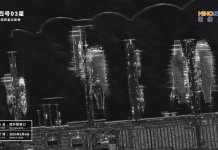China’s largest state-owned automaker BAIC Motor has said that the sale of Petrol Vehicles will be banned by 2025. Beijing is considering taking all fuel-burning cars off the country’s roads. The automaker cited reason of heavy and life-threatening pollution to undertake this step.
Xu Heyi, the chairman of Beijing Automotive Group Co (BAIC Motors China) stated over the weekend that the company will begin to phase out the sales of conventional cars in Beijing by 2020. The nationwide phase-out of car sales will be completed by the year 2025, according to the official Xinhua news agency.
Though a date for entirely eliminating the vehicles is not announced yet, Beijing seems highly keen for a nationwide ban on petrol cars. The decision only applies to cars the company makes itself.
A series of carrots and sticks have been put in place by the government in order to compel carmakers to produce more fuel-efficient instead of petrol cars so that the pollution comes under control especially in the smog-choked cities. Authorities are looking to implement a complex quota system in 2019 requiring car makers to produce a minimum number of electric cars a year.
Due to concerns raised by Germany and other foreign firms, the plan to implement the rule by 2018 has been delayed. Beijing was keen on enforcing the rule in 2018. But as the new direction has been made clear, foreign automakers now have ramped up production for the electric vehicles in China.
A joint venture is being planned by Volkswagen with state-owned JAC Motors to make electric vehicles, aiming to get the first electric car to market by next year. Ford has already made a point that 70 percent of all its cars available in China will have electric options by 2025. Last week, it announced a massive investment of USD 756 million with the Chinese joint venture to produce highly efficient electric cars. Volvo plans to introduce its first 100 percent electric car in China in 2019.
More News
- Chinese Tourists Throng Russia, Boosts Economy
- Around 500 People Dead from devastating Iran-Iraq Earthquake





